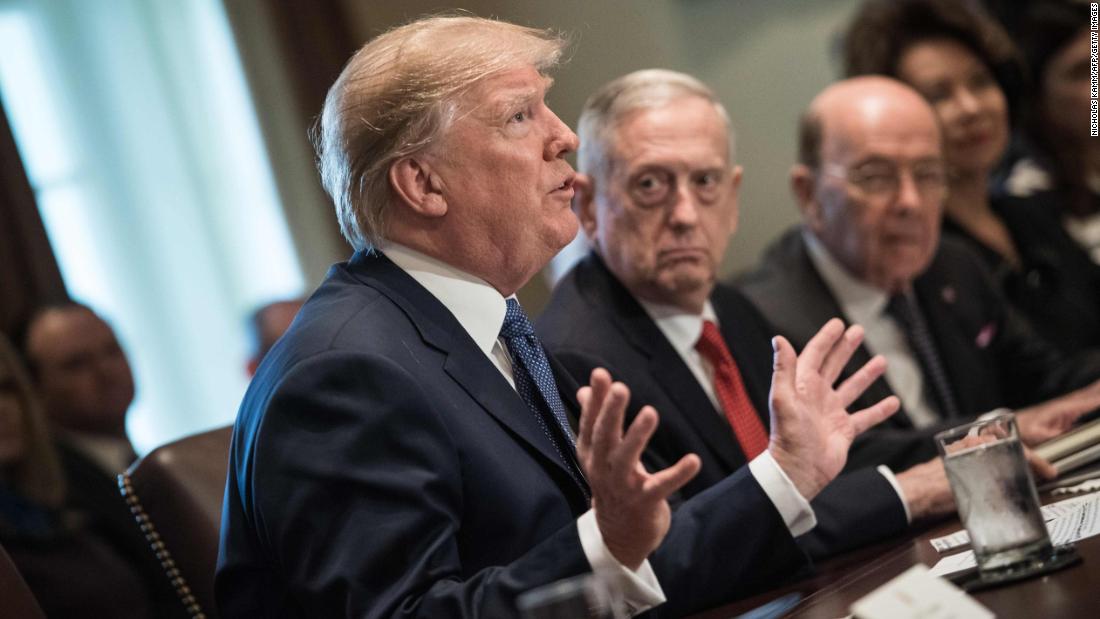Harvard President Responds To Trump's Attacks

Table of Contents
Trump's Initial Attacks and their Context
Former President Trump's attacks on Harvard University, launched primarily through social media posts and public rallies, centered on accusations of liberal bias, alleged misuse of funds, and what he termed a lack of “patriotic values.” These criticisms, often lacking specific evidence, were part of a broader pattern of Trump's targeting of elite institutions he perceived as opposing his political agenda.
- Specific examples of Trump's accusations: Trump repeatedly claimed Harvard was indoctrinating students with leftist ideology and mismanaging its substantial endowment. He also questioned the university's commitment to free speech, ironically.
- Dates and times of the initial attacks: The initial attacks spanned several weeks, starting in [Insert specific dates here – requires research to accurately fill this in] with frequent mentions on his social media accounts.
- Target audience of Trump's attacks: Trump clearly aimed his message at his base of supporters, reinforcing existing narratives about liberal elitism and perceived political correctness within academia.
- Prior instances of conflict: While not directly targeting Harvard previously, Trump's past critiques of higher education in general often included similar themes of perceived liberal bias and wasteful spending.
President Gay's Response and Key Arguments
President Gay's response, delivered in a [Describe the format: official statement, press conference, etc.], was a measured but firm rebuttal of Trump's accusations. She defended Harvard's commitment to academic freedom, emphasizing the importance of open inquiry and the exchange of diverse perspectives. She also highlighted Harvard's substantial contributions to society through research, teaching, and community engagement.
- Key themes in her response: President Gay strongly emphasized Harvard's dedication to intellectual freedom, rigorous scholarship, and its diverse student body and faculty. She directly addressed claims of misuse of funds, providing counterarguments and evidence.
- Tone and style of her response: Her response was characterized by a calm, assertive tone, avoiding direct personal attacks while firmly defending the university's integrity and mission. She adopted a tone of measured rebuke.
- Relevant Harvard policies: President Gay likely referenced specific policies and initiatives aimed at fostering inclusivity, promoting free speech, and ensuring responsible financial management. [Further details require research on President Gay's specific statement].
- Calls to action: President Gay likely called for a constructive dialogue about higher education's role in society and the importance of preserving academic freedom from partisan attacks.
Public Reaction and Media Coverage
The public reaction to both Trump's attacks and President Gay's response was highly polarized, reflecting broader divisions in American society. Conservative media outlets generally supported Trump's claims, while liberal media largely sided with Harvard. Academic circles expressed concern about the potential chilling effect of such attacks on academic freedom.
- Summary of positive and negative reactions: Supporters of Trump praised his stance, viewing it as a necessary pushback against perceived liberal indoctrination. Critics viewed Trump's actions as an attempt to silence dissent and undermine academic institutions.
- Relevant articles and opinion pieces: [Insert links to various news articles and opinion pieces reflecting the diverse perspectives].
- Social media impact: The controversy generated a significant amount of discussion and debate on social media platforms, with hashtags such as #HarvardPresidentResponds and #TrumpHarvardDebate trending widely.
- Role of media bias: The coverage reflected pre-existing media biases, with outlets often reinforcing their existing narratives rather than presenting a completely neutral perspective.
The Broader Implications for Higher Education
The Harvard-Trump clash highlights broader concerns about the politicization of higher education in America. Attacks on universities based on ideological disagreements threaten the principles of academic freedom, open inquiry, and the pursuit of knowledge. The potential for decreased funding and increased political pressure on universities poses a significant threat to their autonomy and ability to fulfill their mission.
- Potential for increased polarization: The controversy further fueled the existing polarization in American society, with universities caught in the crossfire between opposing political factions.
- Concerns about funding and political pressure: The incident raises concerns that universities may face increased pressure to conform to particular political viewpoints to secure funding or avoid political attacks.
- Importance of defending academic freedom: The incident underscores the critical importance of defending academic freedom and protecting universities from political interference.
Conclusion
In conclusion, former President Trump's attacks on Harvard, and President Gay's subsequent response, represent a significant moment in the ongoing debate surrounding higher education in America. Trump's criticisms, however unsubstantiated, highlighted the increasing politicization of universities, while President Gay's measured yet firm defense underscored the importance of academic freedom and the pursuit of knowledge free from partisan interference. The public reaction and extensive media coverage showcase the deep divisions within society, with far-reaching implications for the future of American higher education. We urge readers to engage further with this critical issue by researching President Gay's full statement, reading diverse perspectives, and forming their own informed opinion on the "Harvard President Responds to Trump's Attacks" controversy. Support institutions that champion academic freedom and intellectual discourse.

Featured Posts
-
 The White Lotus Season 3 Did Ke Huy Quan Appear A Kenny Cameo Analysis
May 07, 2025
The White Lotus Season 3 Did Ke Huy Quan Appear A Kenny Cameo Analysis
May 07, 2025 -
 Giorgio Baldi Reopens Rihanna Among First Diners After Fire Damage
May 07, 2025
Giorgio Baldi Reopens Rihanna Among First Diners After Fire Damage
May 07, 2025 -
 Tezyz Alrbt Aljwy Byn Ifryqya Walsyn Atfaqyt Teawn Byn Laram Walkhtwt Aljwyt Aljnwbyt Alsynyt
May 07, 2025
Tezyz Alrbt Aljwy Byn Ifryqya Walsyn Atfaqyt Teawn Byn Laram Walkhtwt Aljwyt Aljnwbyt Alsynyt
May 07, 2025 -
 Tragedia Na Przejezdzie Kolejowym Smierc Piecioosobowej Rodziny I Brak Wyjasnien
May 07, 2025
Tragedia Na Przejezdzie Kolejowym Smierc Piecioosobowej Rodziny I Brak Wyjasnien
May 07, 2025 -
 Warriors Blowout Loss Historical Perspective Offers Encouragement
May 07, 2025
Warriors Blowout Loss Historical Perspective Offers Encouragement
May 07, 2025
